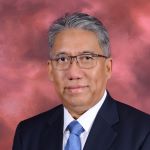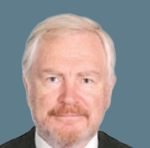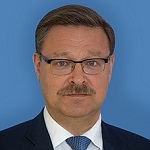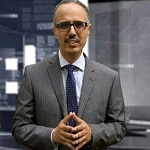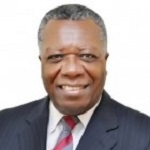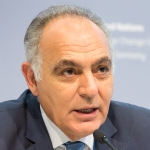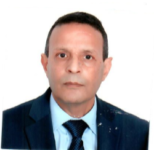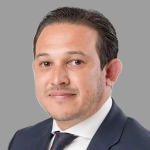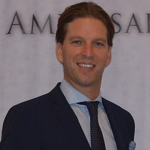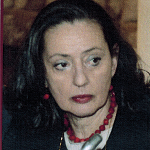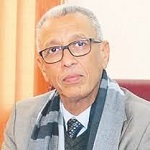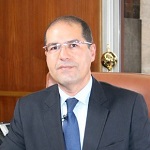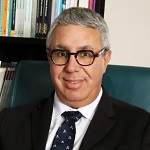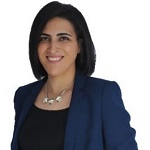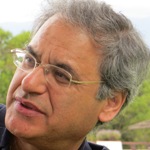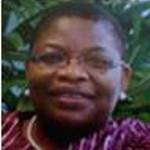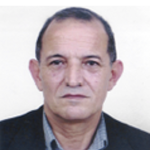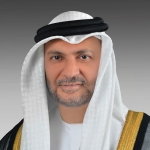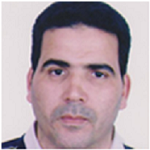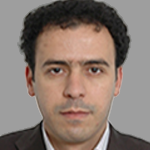First Vice-President of Investment & Engineering company KNGK-Group since 2014. He was CEO of Ilsky Oil Refinery between 2010-2014. During the period 2007-2010, he was Deputy Financial Director at Kuban Oil and Gas Company. Between 2001 and 2007 he worked at the commercial bank “Rasschetniy Dom”. He graduated from Kuban State Technological University and has a MBA degree from MGIMO University in International Oil and Gas Business in 2004.
Bayu Krisnamurthi
Professor in Agribusiness Policy. President Director of BULOG (2023-2024), the only Indonesia SOE for export and import as well as distributing major staple food commodities in Indonesia, and President Commissioner of RNI-IDFood (2021-2023), the biggest SOE food holding company in Indonesia. Founder and Chairman of the Inclusive and Sustainable Agribusiness Initiatives. Chairs IPB University SDGs Network (2019-2021). Chair of the Association of Agribusiness Indonesia (2019-2023). He has held various strategic positions in the Indonesian government for nearly two decades, including Deputy Coordinating Minister for Economic Affair (2005-2010), Vice Minister of Agriculture between 2009 and 2011, and Vice Minister of Trade from 2011 to 2014. He also served as CEO of Indonesia Estate Crop Fund, Ministry of Finance, Republic of Indonesia between 2015 and 2017. Chairman of Indonesian Society of Agricultural Economics from 2011 to 2017, he also chaired the Board of Yayasan Danamon Peduli (Danamon Peduli Foundation) from 2015 to 2019. He was Senior Expert Panel of Indonesia’s Chamber of Commerce between 2018 and 2020. He has been a Board member of Yayasan Bina Swadaya (Self-Reliance Development Foundation) since 1999 and Executive Chair since 2018, as well as Board member of the Andgreen Fund, Netherland (2017-2023). Dr. Krisnamurthi got his Ph.D. in Agriculture Economics from the distinguished Bogor Agricultural University, Indonesia in 1998.
Sergey Storchak
Deputy Finance Minister of the Russian Federation. Responsible for developing State policy in the sphere of public debt, management of State financial assets, cooperation with the IMF, Multilateral Development Banks, G20. Previously he held the following positions: Deputy Chairman of the Bank for Foreign Economic Affairs of the USSR, Director of Division in the Ministry of Finance. He also worked in the Ministry of Foreign Affairs as the Second secretary of the USSR Permanent Mission to the UN Office and other International Organizations in Geneva. He graduated from MGIMO University of the Ministry of Foreign Affairs of the USSR, specializing in international economic relations.
Konstantin Kosachev
Chair of the Foreign Affairs Committee of the Federation Council. In the period 1984-1998, he promoted from Embassy Duty Officer to Deputy Director of the Russian Foreign Ministry. He was a member of the group of advisers of the Minister of Foreign Affairs of the Russian Federation. In 1998-1999, he was assistant, then Deputy Head of the Secretariat of the Prime Minister, responsible for the unit of international issues. From 1999 to 2012, he was Deputy of the State Duma of the Federal Assembly of the Russian Federation. In the 2004-2011 years, he was Chairman of the State Duma International Affairs and Head of the Russian delegation to the Parliamentary Assembly of the Council of Europe (PACE). He was appointed as Head of the Russian Cooperation and Russian President’s Special Envoy for relations with CIS member-states in 2012. In 1984 he graduated from Moscow State Institute of International Relations.
Azer Talybov
Chairman of the Board of Eximbank of Russia. Former Deputy Minister of Economic Development of the Russian Federation. From 2002 to 2008, Azer Talybov served in various positions of the Ministry of Economic Development and Trade of the Russian Federation. He then became Assistant Minister of Economic Development of the Russian Federation (2008-2012). Later, he was Head of the Russian President’s assistant apparatus (2012-2013) and Head of the Secretariat of the President of the Bank of Russia (2013-2017). He was awarded by Presidential Decree with the Medal of the Order “For Services to the Fatherland, 2 degree”. He graduated from Moscow State Institute of International Relations (Masters) in 2002.
Abdessamad Sekkal
President of the Rabat-Salé-Kénitra Regional Council, Morocco. He is also President of the United Regions Organization (ORU Fogar). Before this, he was Treasurer of the Association of Moroccan Regions (ARM). He was also President of the working group “Economic Development” of the International Association of Francophone Regions (AIRF). He is a graduate of both the Moroccan National School of Architecture and of ISCAE, Rabat, Morocco.
Chiedu Osakwe
Director General and Chief Negotiator of the Nigerian Office for Trade Negotiations. He chaired the Negotiating Forum of the African Union (AU) from June 2017 to March 2018, during which time the negotiations were concluded on the Agreement Establishing the African Continental Free Trade Area (AfCFTA). Previously, he was on the staff of the World Trade Organization Secretariat (1998–2017) and was director of a number of WTO divisions. Prior to the WTO Secretariat, he was a Nigerian Foreign Service Officer (1979 to 1998).
Salaheddine Mezouar
President, CGEM. He was Director and CEO of the Spanish company TAVEX. He served as Chairman of the Moroccan Association of Textile and Apparel Industries for two years and as Chairman of the Textile and Leather Federation within the CGEM. In 2004, he was appointed Minister of Industry, Trade, and Restructuring of the Economy. He served as Minister of Economy and Finance and as Minister of Foreign Affairs and Cooperation. He is also co-manager of CTC Maroc, Senior Advisor to the AfBD, Senior Advisor to the Fond Africa 50.
Abderrazzak Laassel
Director for the Maghreb, the Maghreb Union and the African Union Affairs. Deputy Permanent Representative of Morocco to the United Nations headquarters in New York. He held the same position in Geneva in 2007. In 2005, he was appointed Minister Plenipotentiary at the Permanent Mission of the Kingdom of Morocco to the UN in New York. In 2000, he joined the National Steering Committee for Nuclear Affairs. He was appointed Deputy Governor of the Kingdom of Morocco to the Board of Governors of the International Atomic Energy Agency.
Laaziz Kadiri
Chairman Economic Diplomacy Commission, South Africa and South/South Africa, CGEM. After studying finance, Laaziz Kadiri began her career in entrepreneurship and consulting in Morocco, the Middle East and Africa. He then founded LK invest and collaborated with many African states in the implementation of structuring projects. He chairs the Economic Diplomacy Commission, South Africa and South-South Africa within the CGEM.
Miklós Erik Tromler
Ambassador of Hungary to the Kingdom of Morocco since 2015. Prior to this, he was Chargé d’Affaires at the Embassy of Hungary in Rabat after serving as Deputy Head of Mission. At the Ministry of Foreign Affairs of Hungary, he first served as Protocol Officer and then as Senior counsellor for Australia and New-Zealand at the Department for Asia and Pacific Region. Mr. Tromler – prior to his diplomatic carrier – had an international private sector background experience and also had been a professional sportsman. He graduated with an Executive MBA from Corvinus University Budapest and owns a Master Professional of Management, International Economics, Sport Economics from the Université Aix-Marseille II.
Alexandre Medvedowsky
Alexandre Medvedowsky is a graduate of the Institute of Political Studies in Paris, holder of a DEA (Diploma of Advanced Studies) in Macroeconomics (Paris 1) and a former student of the Ecole Nationale d’Administration (Denis Diderot Class, 1984-1986). From 1998 to 2001 he was an associate professor at the University of Aix-Marseille III, and he taught at the IEP in Paris until 2006. He was a councillor of the Bouches-du-Rhône from 1998 to March 2015. He was named a Councillor of State in July 2001 and joined ESL & Network Holding that same year, serving on the Board of Directors. In 2005, he was named President of ESL & Network France and was named Chairman of the Board of Directors in 2013. One year later, he was elected president of SYNFIE, the French syndicate for economic intelligence.
Sladjana Prica-Tavciovska
Ambassador Extraordinary and Plenipotentiary of the Republic of Serbia to the Kingdom of Morocco since August 2014. Prior to this, she was Ambassador in the Ministry of Foreign Affairs, Assistant Minister for Multilateral Affairs, Deputy Assistant Minister for Multilateral Affairs, Permanent Representative of the Republic of Serbia to the Organisation internationale de la Francophonie (OIF), President of the Working Group for the cooperation with OIF. She was a professor at the Diplomatic Academy at the Ministry of Foreign Affairs of the Republic of Serbia, Head of the Serbian delegation and Permanent Representative to UNESCO-WHC and Special Envoy to IHRA.
Abderrahmane Semmar
Manager of the Department in charge of State Owned Enterprises and Privatization at the Ministry of Economy and Finance. He is a member of the National Commission of Corporate Governance. He represents the State as a shareholder in several Public State Owned Enterprises Boards and Boards’ committees. He is Chairman of the Inter Ministerial Committee of the Public-Private Partnership and Chairman of the Permanent Committee of the National Accounting Council. He is a lecturer at high institutes such as International University of Rabat, Moroccan Institute of Board members, and High Institute of Administration. He is a graduate in Business Management from the University of Casablanca. He holds the second certificate in Economics from the University of Rabat and a Diploma of the 3rd cycle of the National School of Public Administration of Rabat.
Khalid Safir
Wali, Director general of local governments at the Ministry of Interior. Prior to this, he was Wali of the Greater Casablanca region, of the Casablanca-Settat region and Secretary-General to the Ministry of Economy and Finance. After serving as Director of compensation and pensions, Director of Modernisation, Resources and Information system at the General Treasury of the Kingdom, and Chargé de mission at the Office of the Minister of Finance and Foreign Investments, he was appointed governor in the Al-Fida-Mers-Sultan district prefecture, then governor in the prefecture of the Casablanca-Anfa district in 2006. He is also President of the Alumni association of the Ecole Polytechnique (X-Maroc). He also served as President of the Association marocaine de prospective.
Nizar Messari
Vice President for Academic Affairs at Al Akhawayn University in Ifrane. After teaching for 10 years at the Pontifical Catholic University of Rio de Janeiro, Brazil, he joined Al Akhawayn University in January 2010, first as an Associate Professor in International Studies, before he was appointed Dean of the School of Humanities and Social Sciences in June 2012. He is the author of academic articles in English, French and Portuguese in various IR journals. He is the author with João Pontes Nogueira of Teoria das Relações Internacionais: Correntes e Debates, which is in its 10th Edition, and the editor of a forthcoming volume with L.H.M. Ling and Arlene B. Tickner, International Relations Theory: Views Beyond the West. He holds a Phd in International Studies from the University of Miami, Florida.
Fatim Zahra Biaz
Entrepreneur and founder of New Work Lab, an innovation lab for entrepreneurs, students and corporations. She develops new creative models in education and has created startup accelerators and coworking spaces in Morocco. She just started a career accelerator that aims at empowering employees and develop their intrapreneurial mindset: School of Changes. She is a disruptive thinker who is committed to the economic and social development of Morocco. Before NWL launching, Fatim Zahra Biaz worked for a few years as a change manager consultant in Paris. She graduated from Edhec Business School and Harvard Kennedy School.
Mathilde Pak
Economist on the Korea/Sweden desk of the Economics Department at OECD. She previously worked in the Structural Policy Analysis Division of the same Department at OECD, at the French Ministry of Labour and at the French National Institute of Statistics and Economic Studies (INSEE) in the Short-Term Economic Analysis and in the Economic Studies Departments. Her research interests focus on the subjects of international trade, external imbalances, labour market and digitalization. Presently, she is finishing her PhD in Economics at the Université Paris-Dauphine.
Eduardo de Campos Queiroz
After 11 years working in investment banking, from 2000 until 2008 Eduardo Queiroz dedicated his career to improve the lives of children and families in different countries by serving as an Instructor, Executive Director and Counselor of Outward Australia, Outward Bound Brazil and Outward Bound Mexico. From 2009 to 2011, Eduardo acted as the Special Advisor to the Secretary of Education of the State of São Paulo. Subsequently, from 2011 until October 2018, Eduardo led the Maria Cecilia Souto Vidigal Foundation in Brazil as the Chief Executive Officer. In the past 5 years, he has also served as a volunteer member of the Board of United Way Brazil, ESPRO and Outward Bound Brazil. Eduardo holds a degree in Business Administration, a Specialization in Finance from Getúlio Vargas Foundation, as well as a Master’s in Public Administration from the Harvard Kennedy School of Government where he was a Mason and Lemann fellow.
Natasha Franck
Founder and Chief Executive Officer of EON, which aims at pioneering the future of connected and circular fashion with a global Internet of Things framework for Digital Identity and embedded RFID technology. Before launching EON, she was the Senior Vice President of Global Business Development at Delos, a technology and real estate start-up. After supporting the launch of Delos’ International WELL Building Institute in the US, she lead the global expansion of WELL Building Standard through strategic partnerships in Asia Pacific, Europe and the Middle East. Prior to joining Delos, she worked at Jonathan Rose Companies where she consulted on smart cities and urban design and development. She holds a Bachelor’s Degree from Georgetown University.
Jasna Atanasijević
Director of Public Policy Secretariat of the Republic of Serbia, since its establishment in 2014. She is Assistant professor in finance and mathematical introduction to economics at the Department of Mathematics and Informatics of the Faculty of Sciences, University of Novi Sad. She previously worked as chief economist in a bank and researcher in a think tank as well as a consultant in the area of finance and economic policy topics. Since December 2015, she is presidency member of the Serbian Association of Economists. She obtained her Master degree in finance from the University Toulouse 1 in 2003 and her PhD in applied economics from University Paris 1 Sorbonne in 2013.
Chittaranjan Kaul
Director of the Centre for Learning Resources in Pune, India. He has run banking businesses around the world; run and set up residential and day schools; been a nonprofit manager; coached senior corporate and non-corporate executives in enhancing personal and organizational effectiveness; worked with and coached management teams, parents and teachers of educational institutions; and provided strategy advice to for-profit and nonprofit organizations. He earned a degree in electrical engineering from the National Institutes of Technology (NIT), Srinagar and a PGDM from the Indian Institutes of Management (IIM), Ahmedabad.
Bojana Tosic
Acting Director of the Public Policy Secretariat of the Republic of Serbia since January 2018. In 2008 she entered the Register of Lawyers with the Bar Association of Belgrade. Between 2007 and 2011, she was a legal adviser at the Secretariat of the Council for Regulatory Reform and Regulatory Impact Assessment. Between 2008-2010 she worked as a coordinator of the legal team of the Unit for the Implementation of Comprehensive Regulatory Reform of the Government of the Republic of Serbia. She was Deputy Director of the Government Office for Regulatory Reform and Regulatory Impact Assessment and acting Deputy Director of Public Policy Secretariat. She graduated from the Faculty of Law at the Belgrade University.
M’hammed Dryef
Senior Fellow, Policy Center for the New South. Mhammed Dryef has held several responsibility positions including: Chief of staff at the Ministry of the Interior, Governor Director of the Casablanca Urban Agency, Director General for National Security, Director General for Urban Planning and Territorial Planning, Wali- Director General for Interior Affairs, and Wali of Fez, Casablanca, and Laayoune. In addition, Mhammed Dryef has published a book on urbanization in Morocco as well as various studies on decentralization, regionalization, and the evaluation of public policies. He holds a PHD in Public Law from the University of Grenoble, a diploma from the National School of Public Administration and a post graduate diploma in private law.
Obiageli Ezekwesili
Co-Founder, Transparency International. During her time as education minister, she led an extensive and comprehensive reform program, and her blueprint for overhauling the sector is a reference document from which other countries in Africa have borrowed ideas. A former vice-president of the World Bank’s Africa Region, she was recently, a senior advisor on Africa Economic Development Policy at the Open Society Foundations in New York, assisting the Mano River governments with economic policy reforms. She is a leading chartered accountant and co-founder of the global anti-corruption group, Transparency International. She is also one of the co-conveners of the Bring Back Our Girls campaign to find the 300 Nigerian schoolgirls abducted by Boko Haram in 2014. She has held several key positions within the Nigerian government including senior special assistant to the President of Nigeria on budget monitoring and price intelligence, Minister of Mineral Resources and Minister for Education.
Mohammed Rachid Doukkali
Vice Dean of the Mohammed VI Polytechnic University and Senior Fellow at the Policy Center for the New South. He is President of the Moroccan Association of Agricultural Economics and associate member of the General Council of Agricultural Development of Morocco. Prof. Doukkali performed several consultancies with the Ministry of Agriculture of Morocco, and national and international organizations (World Bank, FAO, UNDP) and several Mediterranean and African countries. Prof. Doukkali collaborates with several national research institutions, such as INRA-Morocco, and with international research institutions, such as CIHEAM, CIRAD, CEMAFREF, IFPRI and ICARDA.
Anwar Mohammed Gargash
Diplomatic Advisor to the President of the United Arab Emirates. He joined the Federal Government in 2006 as Minister of State for Federal National Council Affairs, and was later appointed Minister of State for Foreign Affairs. He was Chairman of the National Elections Committee, Chairman of the National Committee to Combat Human Trafficking, Chairman of the Board of Trustees of the Al Owais Cultural Foundation and a member of the Board of Trustees of the Anwar Gargash Diplomatic Academy (AGDA). He received his Ph.D. from King’s College, Cambridge and holds Bachelor’s and Master’s Degrees in Political Science from George Washington University.
Aomar Ibourk
Professor of quantitative methods and social economics at the Cadi Ayyad University in Marrakech, an economist, as well as Senior Fellow at OCP Policy Center who focuses on Applied econometrics, labor market, economics of education and development economics. He is also the director of GRES (Economic and Social Research Group) at the same university. His research focuses on econometric methodologies applied to social sciences (labor economics, economics of education and Development). Mr. Ibourk’s doctoral thesis looks into the “Contribution to Econometrics through the Labor Market Matching Process: Macro and Microeconometric Approaches to the Moroccan Labor Market.”
Larabi Jaïdi
Senior Fellow at the Policy Center for the New South and former Professor at Mohammed V University in Rabat. He is a founding member of the Centre Marocain de Conjoncture and of the Groupement d’Etudes et de Recherches sur la Méditerrannée. He is a member of the Research Group within the Euro-Mediterranean Universities Networks. He acted as Adviser to the Prime Minister and to the Minister of Economy and Finance. He acts as independent expert to the Moroccan Competition Council and the Moroccan Authority for the fight against Corruption. He wrote various publications about economic and social development and international economic relations.
Jamal Machrouh
Senior Fellow, Policy Center for the New South. Jamal Machrouh is professor of international relations at the National School of Business and Management, Ibn Toufaïl University, Kénitra and Senior Fellow at the Policy Center for the New South, formerly OCP Policy Center, where he focuses on Geopolitics and International Relations issues. Mr. Machrouh is lecturer at the Royal College of Advanced Military Studies of Kénitra and at Södertörn University of Stockholm, Sweden. He is the author of a book titled Justice and Development under World Trade Organization and of various articles dealing with international relations and geopolitics.


